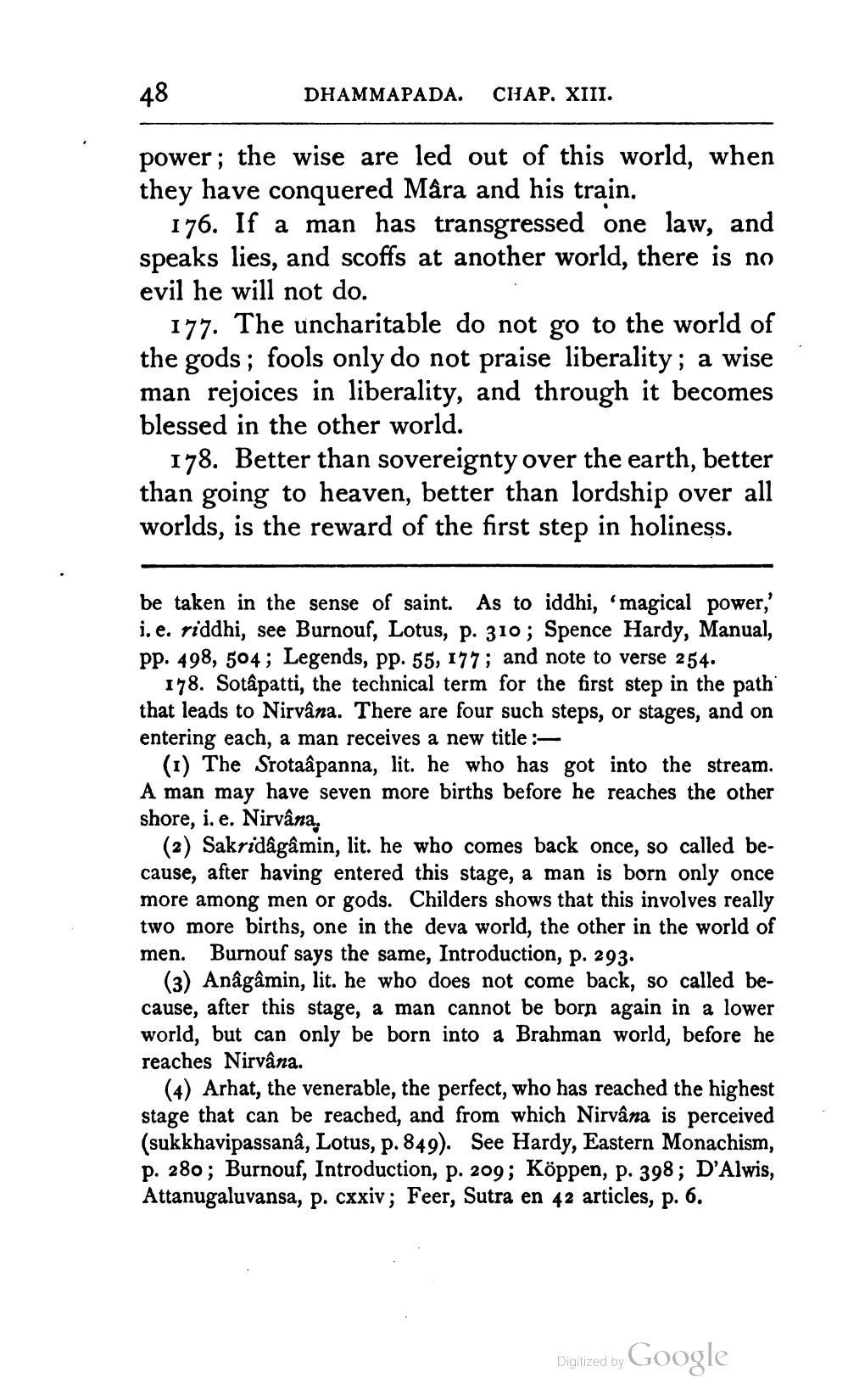________________
DHAMMAPADA. CHAP. XIII.
power; the wise are led out of this world, when they have conquered Mâra and his train.
176. If a man has transgressed one law, and speaks lies, and scoffs at another world, there is no evil he will not do.
177. The uncharitable do not go to the world of the gods; fools only do not praise liberality; a wise man rejoices in liberality, and through it becomes blessed in the other world.
178. Better than sovereignty over the earth, better than going to heaven, better than lordship over all worlds, is the reward of the first step in holiness.
be taken in the sense of saint. As to iddhi, magical power,' i.e. riddhi, see Burnouf, Lotus, p. 310; Spence Hardy, Manual, pp. 498, 504; Legends, pp. 55, 177; and note to verse 254.
178. Sotâpatti, the technical term for the first step in the path that leads to Nirvâna. There are four such steps, or stages, and on entering each, a man receives a new title :
(1) The Srotaâpanna, lit. he who has got into the stream. A man may have seven more births before he reaches the other shore, i. e. Nirvana.
(2) Sakridâgâmin, lit. he who comes back once, so called because, after having entered this stage, a man is born only once more among men or gods. Childers shows that this involves really two more births, one in the deva world, the other in the world of men. Burnouf says the same, Introduction, p. 293.
(3) Anâgâmin, lit. he who does not come back, so called because, after this stage, a man cannot be born again in a lower world, but can only be born into a Brahman world, before he reaches Nirvana.
(4) Arhat, the venerable, the perfect, who has reached the highest stage that can be reached, and from which Nirvana is perceived (sukkhavipassana, Lotus, p. 849). See Hardy, Eastern Monachism, p. 280; Burnouf, Introduction, p. 209; Köppen, P. 398; D'Alwis, Attanugaluvansa, p. cxxiv; Feer, Sutra en 42 articles, p. 6.
Digitized by Google




